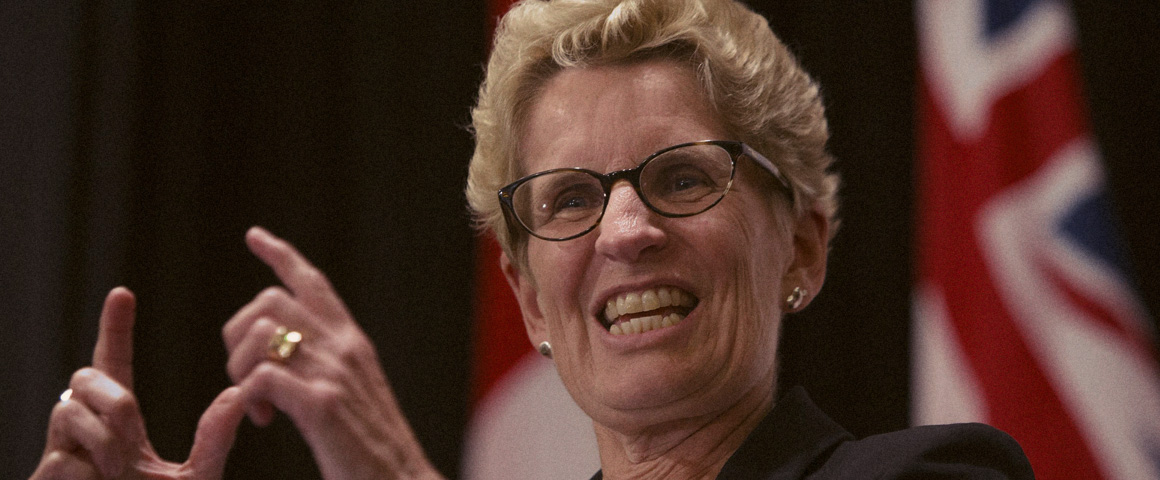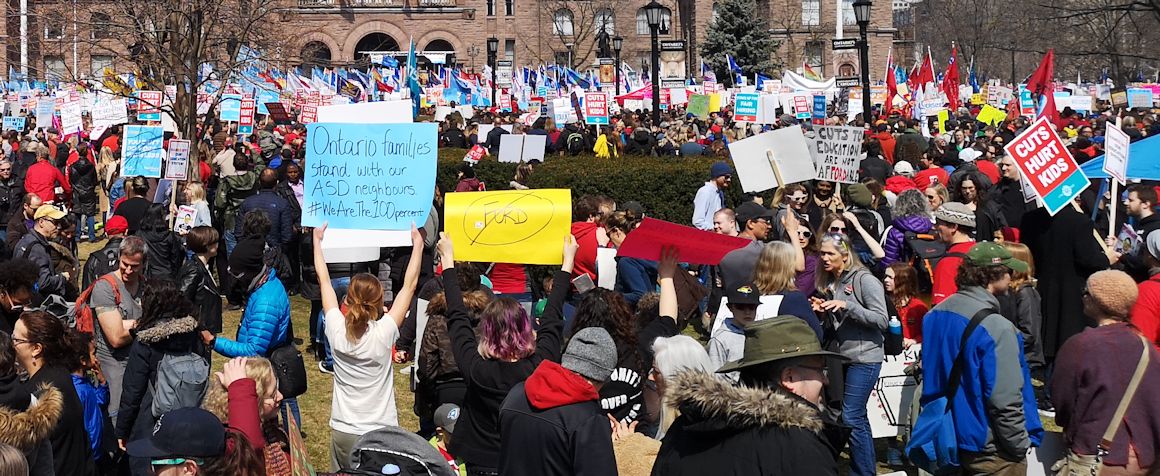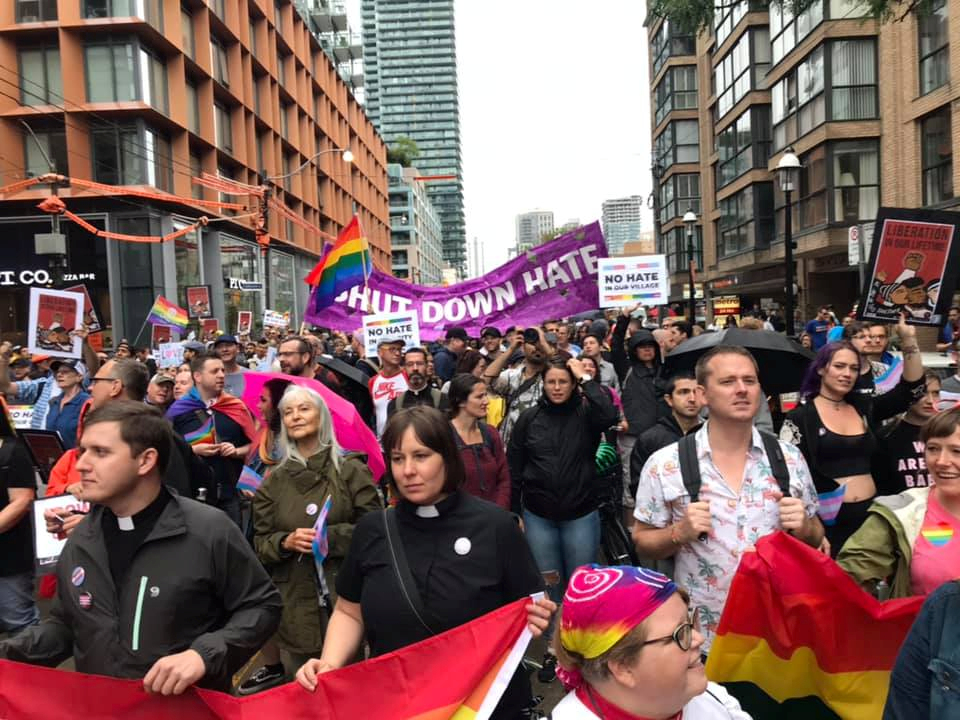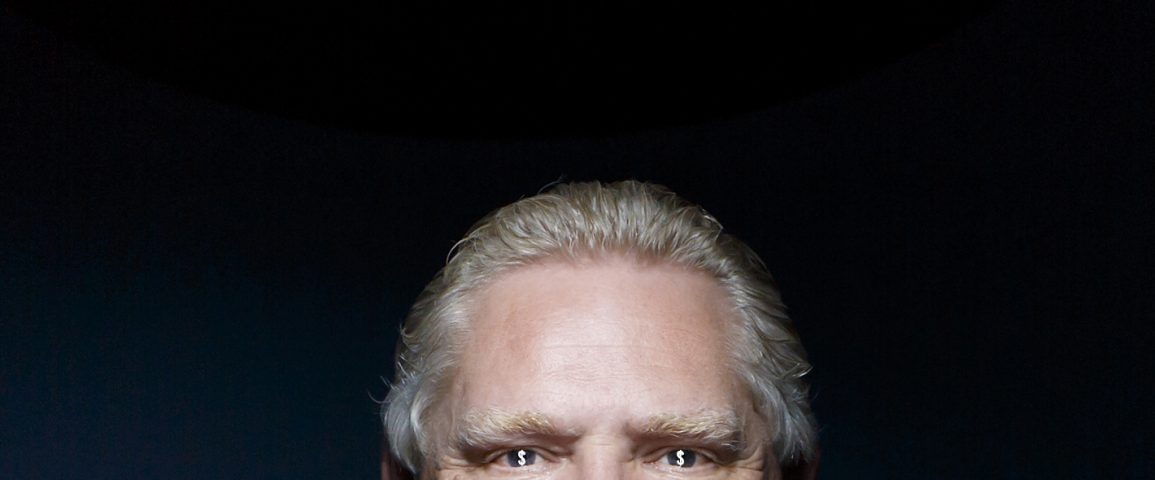Largely in response to negative press about her party’s scandalous “cash for access” fundraising dinners, Ontario Premier Kathleen Wynne has introduced sweeping changes to the province’s election financing laws.
Unfortunately, Bill 201 An Act to Amend the Election Finances Act and the Taxation Act, does nothing to address parties’ receipt of money in return for meetings with senior Cabinet members. Instead, it delivers another blow to democracy in the form of a full-on frontal assault against working class participation in electoral politics.
In the first place, the proposed legislation aims to ban political donations from trade unions. While a related proposal to eliminate corporate donations to political parties and candidates is welcome, the government is wrong to take the same approach to trade unions. Unions are not corporations, and pretending that they are and applying the same rules places a serious limit on the ability of working people – the vast majority of the population – to participate fully in the electoral process. This is especially true in a class society, in which the political marginalization of the working class is a constant and growing feature.
Furthermore, trade unions have nowhere near the financial capacity of corporations to influence political and electoral activity. The large national and transnational corporations are multi-billion dollar operations, whose interests are narrowly focused on profit, and often collide with the public interest.
Not all working people are in a position to be publicly involved as individuals in the political process. Many have legitimate concerns for their employment, for their legal status in Canada, or for the safety of families abroad. At the same time, we all have the right to be politically active. Trade union political activity is a very important avenue for workers to exercise their democratic rights through an already democratic and transparent organization.
The simple fact is that working people, whether individually or in association with other working people, have the right to participate in elections. By banning trade union donations, Bill 201 diminishes this fundamental right.
The second aspect of this attack on working class political participation comes in the form of draconian limits on third party spending and activity. In recent years the provincial Conservatives, combined with right-wing think tanks and the corporate media, have raised a storm of criticism about the level of third party spending. This outcry has been promoted as a way to support Bill 201’s proposal to limit third party election spending to $4000 per electoral district and $100,000 overall, as well as non-election period limits of $24,000 per district and $600,000 overall for six months before a general election.
The right-wing is particularly vocal about the role of trade unions in third party advertising. A recent article in the Globe and Mail bewailed that “Ontario unions have spent more than $15-million to campaign in the past three general elections, 94 per cent of all third-party advertising.” Of course, these sources do not mention the decades-long, huge combined level of corporate financing and manipulation of the political process, including political donations, third party spending, “buying” editorial lines, and staged photo ops.
What is really notable about the manufactured outrage over third party advertising is that it has arisen specifically in response to working class campaigns that have had an impact on election outcomes. In particular, the Tories and their allies are frustrated that the Working Families Coalition has been effective in building opposition to key Conservative policies, like right-to-work legislation and attacks on the public sector.
The legislation could, and should, deal with the overall issue of general election campaign spending levels. In 2014, the total spending limit for a party was $7.4 million. Without a doubt, such high spending limits allows the largest and best-funded parties to “buy elections” by financially exhausting both their opponents and the electorate. Rather than proposing significant reductions in campaign spending limits, which would limit corporate involvement in elections, the government has zeroed in on the one area – third party spending – in which the working class and its organizations are able to make an impact with their own voice.
There are other areas of concern with Bill 201. The proposal to dramatically lower individual contribution limits and introduce a per-vote allowance represents a further, and very significant, shift in political financing from the realm of donations from the public, to greater state support through per vote funding. The people have the right to fund their parties and movements – limiting that right, and replacing it with a form of state funding that privileges the largest parties, are mechanisms for diminishing democracy.
Furthermore, the bill does nothing to address the serious problem of unequal access to free-time media broadcasting, which amounts very clearly to a form of donation and subsidy to the largest parties, especially those represented in legislature. This applies to both the “free-time” party broadcasts and access to the private broadcast consortium’s election debates and discussions. To ensure that free broadcasting is equally provided, and that there are no exclusions, it should be covered by the provincial Election Finances Act.
Political financing has a profound impact on democracy and democratic participation. Ontario needs a broad public consultation that provides the people – individually and through popular movements – the opportunity to discuss how funding rules relate to broader questions of democracy. These include questions of participation, accessibility, engagement, transparency, equality, and others. Such a process is a necessary step that can point toward progressive legislative proposals to expand and deepen democracy.
Bill 201 just another a dressed up body-check on working class political participation. Despite all of the government’s claims that this legislation is about “levelling the playing field,” it clearly aims to corral Ontario’s working class into a limited, highly regulated and marginalized zone of political participation.




